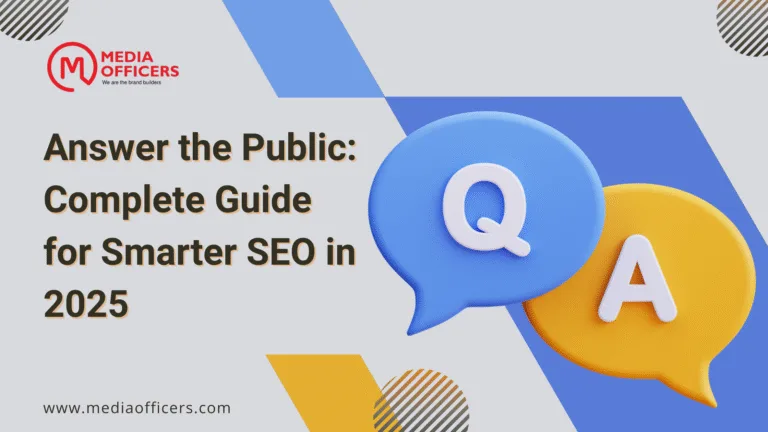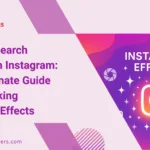|
Getting your Trinity Audio player ready... |
Search Engine Optimization (SEO) is a set of practices aimed at enhancing a website’s visibility in search engine results pages (SERPs). The primary objective is to improve a site’s ranking for relevant keywords, thereby increasing organic traffic. SEO encompasses various techniques, including keyword research, on-page optimization, content creation, and link building.
Search engines employ complex algorithms to evaluate and rank websites based on numerous factors. These algorithms consider elements such as keyword relevance, site structure, content quality, and backlink profile to determine a website’s authority and relevance for specific search queries. SEO professionals work to optimize these factors, aligning websites with search engine requirements and user intent.
The dynamic nature of search engine algorithms necessitates ongoing SEO efforts. As search engines refine their ranking criteria, websites must adapt their strategies to maintain and improve their positions in SERPs. This continuous process involves staying informed about algorithm updates, analyzing performance metrics, and implementing new best practices in response to evolving search engine guidelines and user behaviors.
Key Takeaways
- SEO stands for search engine optimization and is the process of improving a website’s visibility on search engines.
- Keyword research and optimization are crucial pre-SEO strategies to ensure that the website’s content aligns with what users are searching for.
- Website optimization and technical SEO involve improving the website’s structure, speed, and mobile-friendliness to enhance user experience and search engine rankings.
- Content creation and link building are important pre-SEO strategies to establish the website as a valuable resource and improve its authority and relevance.
- Monitoring and analyzing performance, adjusting and updating SEO tactics, and building and maintaining quality backlinks are essential post-SEO strategies to sustain and improve the website’s search engine rankings.
Pre-SEO Strategies: Keyword Research and Optimization
Identifying Relevant Keywords
Keyword research involves using tools like Google Keyword Planner, SEMrush, and Ahrefs to identify popular and relevant keywords in a specific niche. These tools provide valuable insights into search volume, competition, and relevance, helping websites to identify the most effective keywords for their content.
Optimizing for Keywords
Once the relevant keywords are identified, the next step is keyword optimization. This involves strategically placing the keywords in various elements of the website, such as the title tags, meta descriptions, headers, and content. It’s essential to use keywords naturally and avoid keyword stuffing, which can negatively impact a website’s rankings.
Understanding User Intent
Another crucial aspect of keyword optimization is understanding user intent. User intent refers to the reason behind a user’s search query and can be categorized into informational, navigational, transactional, and commercial investigation. By understanding user intent, websites can create content that aligns with what users are looking for, ultimately improving their search engine rankings.
Pre-SEO Strategies: Website Optimization and Technical SEO

Website optimization is another crucial pre-SEO strategy that involves improving various elements of a website to enhance its visibility and user experience. This includes optimizing the website’s structure, navigation, speed, and mobile-friendliness. A well-optimized website not only improves its search engine rankings but also provides a better experience for users.
One aspect of website optimization is ensuring that the website has a clear and logical structure that makes it easy for search engine crawlers to index its pages. This involves organizing the website into categories and subcategories, using descriptive URLs, and creating an XML sitemap to help search engines understand the website’s structure. Another important aspect of website optimization is technical SEO.
This involves optimizing various technical elements of a website, such as its code, server settings, and performance. Technical SEO aims to improve a website’s crawlability, indexability, and overall performance on search engines. This includes optimizing the website’s robots.txt file, fixing broken links and redirects, improving page speed, and implementing schema markup to enhance the website’s appearance in search results.
In addition to technical SEO, websites should also ensure that their website is mobile-friendly. With the increasing use of mobile devices, having a responsive and mobile-friendly website is crucial for both user experience and search engine rankings. Websites should use responsive design, optimize images and videos for mobile devices, and ensure that their website loads quickly on mobile devices.
Pre-SEO Strategies: Content Creation and Link Building
| Metrics | Content Creation | Link Building |
|---|---|---|
| Number of blog posts | 20 | – |
| Number of guest posts | – | 10 |
| Number of infographics | 5 | – |
| Number of backlinks | – | 50 |
Content creation is a fundamental pre-SEO strategy that involves creating high-quality and relevant content for a website. Content plays a crucial role in SEO as it helps websites target keywords, attract backlinks, and provide value to users. High-quality content not only improves a website’s search engine rankings but also engages users and encourages them to stay on the website.
When creating content for SEO, it’s important to focus on relevance, quality, and value. This means creating content that is relevant to the target audience, well-researched, and provides valuable information or insights. Content can come in various forms, including blog posts, articles, videos, infographics, and podcasts.
By diversifying content types, websites can attract different types of users and improve their overall visibility on search engines. Link building is another important pre-SEO strategy that involves acquiring backlinks from other websites. Backlinks are links from external websites that point to a website and are considered as “votes of confidence” by search engines.
The more high-quality backlinks a website has, the more authority it has in the eyes of search engines. This can improve a website’s search engine rankings and drive more organic traffic. There are various strategies for link building, including creating high-quality content that naturally attracts backlinks, reaching out to other websites for guest posting opportunities, submitting websites to online directories, and participating in industry-specific forums or communities.
It’s important to focus on acquiring relevant and high-quality backlinks from authoritative websites in order to improve a website’s search engine rankings.
Post-SEO Strategies: Monitoring and Analyzing Performance
Once SEO strategies are implemented, it’s important to monitor and analyze their performance to understand their impact on a website’s visibility and traffic. This involves using tools like Google Analytics, Google Search Console, and third-party SEO tools to track key metrics such as organic traffic, keyword rankings, click-through rates, bounce rates, and conversion rates. By monitoring these metrics, websites can gain insights into how their SEO strategies are performing and identify areas for improvement.
For example, if certain keywords are not performing well or if there is a high bounce rate on certain pages, websites can adjust their SEO strategies accordingly to address these issues. Analyzing performance also involves understanding user behavior on the website. This includes analyzing which pages users are visiting, how long they are staying on the website, and which actions they are taking (such as making a purchase or filling out a contact form).
By understanding user behavior, websites can optimize their content and user experience to better meet the needs of their audience.
Post-SEO Strategies: Adjusting and Updating SEO Tactics

Staying Informed About Algorithm Changes
Search engines like Google regularly update their algorithms to improve search results and combat spammy tactics. Websites need to stay informed about these changes and adjust their SEO strategies accordingly to maintain or improve their search engine rankings.
Updating Content and Optimizing for New Keywords
As user behavior and search trends change over time, websites need to regularly update their content to ensure it remains relevant and valuable to users. This may involve refreshing existing content with new information or creating new content to target emerging keywords or topics.
Continuous Improvement and Adaptation
By staying informed about algorithm changes and updating content to match changing user behavior, websites can continuously improve and adapt their SEO strategies to achieve better search engine rankings and drive more traffic to their site.
Post-SEO Strategies: Building and Maintaining Quality Backlinks
Even after implementing initial link building strategies, it’s important for websites to continue building and maintaining quality backlinks as part of their post-SEO strategies. This involves ongoing outreach efforts to acquire new backlinks from authoritative websites in the industry. One strategy for building quality backlinks is creating newsworthy or shareable content that naturally attracts backlinks from other websites.
This may include conducting original research, publishing industry reports or studies, or creating compelling visual content that other websites want to link to. Another strategy for maintaining quality backlinks is monitoring existing backlinks and addressing any issues such as broken links or outdated anchor text. Websites should regularly review their backlink profile using tools like Ahrefs or Moz to ensure that all backlinks are still active and relevant.
In conclusion, SEO is a complex yet essential process for improving a website’s visibility on search engines. By understanding the basics of SEO and implementing pre-SEO strategies such as keyword research and optimization, website optimization and technical SEO, content creation and link building, websites can improve their search engine rankings and drive more organic traffic. Additionally, post-SEO strategies such as monitoring performance, adjusting tactics, and building quality backlinks are crucial for maintaining and improving a website’s visibility over time.
If you’re looking to maximize your online presence, you may want to consider hiring an SEO agency near you. According to a recent article on Media Officers, having a strong SEO strategy is crucial for businesses looking to stand out in the digital landscape. The article discusses the importance of working with a local SEO agency and how it can benefit your online visibility. Check out the full article here.
FAQs
What is Pre Post SEO?
Pre Post SEO refers to the process of optimizing a website for search engines before and after the content is published. It involves various strategies and techniques to improve the website’s visibility and ranking on search engine results pages.
Why is Pre Post SEO important?
Pre Post SEO is important because it helps to improve the visibility and ranking of a website on search engines, which can lead to increased organic traffic and better online visibility. It also helps to ensure that the website’s content is optimized for relevant keywords and provides a better user experience.
What are some pre SEO techniques?
Some pre SEO techniques include keyword research, website optimization, content creation, and website structure improvement. These techniques help to ensure that the website is well-prepared for search engine optimization before the content is published.
What are some post SEO techniques?
Some post SEO techniques include link building, content promotion, monitoring website performance, and making necessary adjustments to improve search engine ranking. These techniques help to maintain and improve the website’s visibility and ranking after the content is published.
How does Pre Post SEO benefit a website?
Pre Post SEO benefits a website by improving its visibility and ranking on search engine results pages, increasing organic traffic, and providing a better user experience. It also helps to ensure that the website’s content is optimized for relevant keywords and reaches the target audience effectively.







